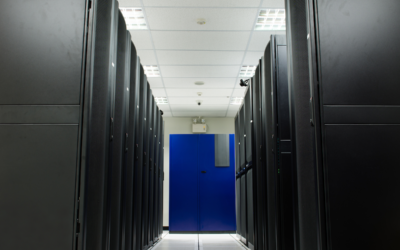The Role of IT Infrastructure in Pandemic Health Care15 min read

It’s no secret that COVID-19 uprooted many business processes, and the health care industry was no exception. The pandemic forced health care facilities to adapt their processes to focus on providing high-quality care to the influx of new patients diagnosed with COVID-19.
In addition, the IT infrastructure that supports health care facilities had to adapt quickly in order to adjust to new processes and accommodate the increased demand. As a result, IT professionals had to work tirelessly during the height of the pandemic to meet this need for improved health care IT infrastructure, and continue to do so.
Increasing Demand for Data Centers
Because the pandemic has influenced health care institutions to share information across disparate sources, it’s no wonder data centers have become very valuable to the industry.
Without a reliable storage method, it would be difficult for medical professionals to access vital patient information quickly and securely. This crucial information can impact potential patient treatment and care, making stable data centers very important.
Because more data is being collected regarding COVID-19 patients, storing it is imperative. Establishing governance and access control methods also comes with this, as sharing COVID-19 data has been necessary to prevent the spread of the virus.
What Data Is Being Stored?
Much of the information stored in these data centers concerns patients’ health records, which are now considered electronic health records (EHRs). Health data mainly consists of any individual patient or collective group EHRs.
Aside from EHRs, another type of data being collected derives from health care call centers. Capturing automated call information during the pandemic has also helped educate medical professionals about common symptoms patients were experiencing.
Because exposure to COVID-19 patients was risky, using call services became vital for health care operations, whether checking in on people’s conditions or providing more information on how to proceed with treatment.
This data plays an integral role in the fight against COVID-19, and analyzing it allows medical professionals to make more informed decisions about how to proceed with care options.
Data Sharing Projects in Health Care
Many health care facilities and organizations recognize the importance of data collection, especially during this health crisis.
For example, HCA Healthcare, a leading health care provider, formed a consortium of public and private research institutions to use their vast amount of data to improve patient outcomes and increase the general knowledge of the virus.
Some of the institutions receiving this shared data are Johns Hopkins University, Duke University, the Agency for Health Research and Quality, and others. HCA created a COVID-19 registry that collected data from more than 110,000 patients who entered hospitals for inpatient care.
Another data-sharing project is known as N3C, or the National COVID-19 Cohort Collaborative. This program is sponsored by the National Center for Advancing Translational Sciences (NCATS). It includes data from over 1.2 million COVID-19 patients across 197 organizations. It’s a massive project that certainly contributes to the overall fight against the virus.
The Future Role of Data in Health Care
The role of data will likely become increasingly vital to health care operations. More medical technologies are emerging, especially the Internet of Medical Things (IoMT) tech, which will only add to the volume of captured data. It will be interesting to see how the role of data changes in the fluctuating health care landscape.
Real-time monitoring, data-driven optimization.
Immersive software, innovative sensors and expert thermal services to monitor,
manage, and maximize the power and cooling infrastructure for critical
data center environments.
Real-time monitoring, data-driven optimization.
Immersive software, innovative sensors and expert thermal services to monitor, manage, and maximize the power and cooling infrastructure for critical data center environments.

Devin Partida
Editor-in-Chief at ReHack
Devin Partida writes about data, cybersecurity and smart tech for ReHack.com, where she is also the Editor-in-Chief.







0 Comments